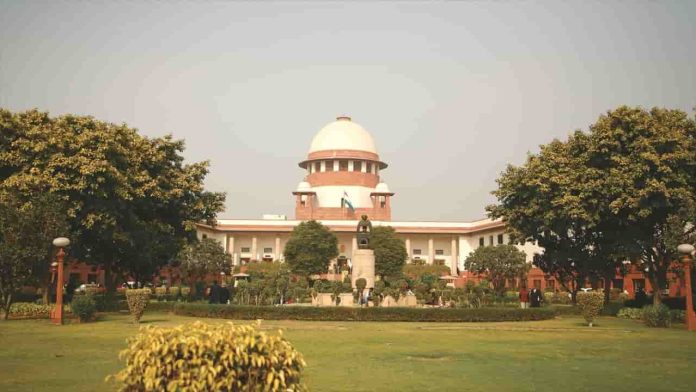The Supreme Court on Monday reserved its verdict on a batch of petitions, which challenged the constitutional validity of the Central Vigilance Commission (Amendment) Act, 2021, and the third extension given to Enforcement Directorate chief S.K. Mishra.
Representing the Union of India, Solicitor General Tushar Mehta contended before the Bench of Justice B.R. Gavai, Justice Vikram Nath and Justice Sanjay Karol that the public interest litigation (PIL) petitions filed by members of political parties should be dismissed since they were obliquely motivated.
The petitioner in the case include Congress leaders Jaya Thakur and Randeep Singh Surjewala, Trinamool Congress legislator Mohua Moitra, and TMC spokesperson Saket Gokhale.
During the last hearing, the law officer had pointed out that the leaders of these parties were under ‘serious investigation’ by the Enforcement Directorate. Mehta began on the same note today, but Justice Gavai told him not to repeat the argument.
The SG then said that even while delivering the judgement in Common Cause vs Union of India (2021), the Apex Court had refused to go into ‘that’ question.
Mehta was referring to the 2021 verdict delivered by the Bench of Justice L. Nageswara Rao and Justice B.R. Gavai. While holding that extensions could only be granted in ‘rare and exceptional cases’ for a short period of time and affirming the first extension to Mishra’s tenure, the Bench had firmly held that no further extension could be granted to Mishra.
The SG suggested that the Apex Court could keep that question open here as well. However, Justice Gavai asked him not to convert the court into a political platform.
Mehta contended that it was not the Central government which had ‘converted’ the top court of the country into a political platform. The petitioners have done that, he added.
However, he clarified that he was not trying to repeat the objection regarding the petitioners’ locus standi, but merely trying to point out that the term of the incumbent director was not extended to the detriment of other qualified officers waiting in line.
When the government has a justification for the extension granted, would this court’s examination not be different, especially when there were no other officers whose chances would be affected, asked the law officer. He said the post of the Director of the Enforcement Directorate was not a ‘promotional’ one.
(Case title: Jaya Thakur vs Union of India & Ors)


